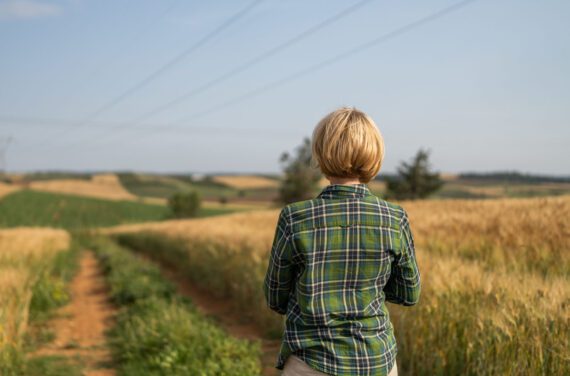By Robin Stephenson
August heat in Washington, D.C., is renowned for its humidity. It’s the kind of hot that covers every surface in a sticky film, a burden to all but the lively mosquitos that feast on the stillness.
In the early years of the Republic, members of Congress fled the muggy heat in spring, not returning to the nation’s capital until December. By the 1950s, however, legislation had become a year-round job with few breaks.
By 1971, Congress mandated the in-district work period for the month of August, giving members a break from the heat and a chance to reconnect with their constituents. Four years later, Bread for the World was established, and since then, our members have taken advantage of August recess to talk about hunger.
“Summer is a critical time to make our voices heard on behalf of those who struggle with hunger and poverty,” said Matt Gross, director of Bread’s organizing department. He and his team have set an ambitious goal of 200 in-district meeting over the next month to talk about the Child Tax Credit and global nutrition.
A group from Iowa were first out of the chute. Last week, 13 Bread members, including several faith leaders, met online to talk to staff from Republican Sens. Chuck Grassley and Joni Ernst’s offices.
Pastor Eric Hanson, of Faith Lutheran Church in Andover, Iowa, was one of the leaders present. According to Hanson, there is biblical precedent for these types of meetings. “Faith-based advocacy is part of our Christian heritage,” he said. “It goes back to Moses advocating to Pharoah and on up to recent times with leaders like Martin Luther King Jr.”
During the August 4 meeting, Hanson learned that the senators did not support the request to make the Child Tax Credit expansion permanent. He and the other Bread leaders used that as an opportunity to learn more from the legislative assistant who works on tax policy. They asked questions, listened, and will follow up.
As Moses’ and King’s examples teach us, change takes perseverance and is not always an easy journey. Hanson says he is not daunted when he faces opposition from his elected officials because he is not there as a partisan but to seek God’s justice.
“Faith-based advocacy is putting a puzzle together,” said Hanson. “You learn who in the office you need to speak to; you build relationships with them; you build relationships with leaders in your community and build support; and you continue the conversation. What’s important in the end is not just the specific legislation that you are advocating for,” he said, “but that God’s people are cared for. And we seek God’s justice.”
Zach Schmidt, who for the past 13 years has organized in Iowa and eight other states, has seen the payoff these conversations can have. “August recess is a key step in our cycle of advocacy,” he said. The meetings can change minds, culminating in what he calls the final phase in the cycle: celebration.
“The in-district meetings are a good time to build relationships and make asks,” Schmidt said. “Then we can evaluate and circle back as needed.”
Whether a puzzle or part of an advocacy cycle, dedicated Bread members will continue in the footsteps of the great Christian leaders that came before: they will always advocate for God’s justice, come rain or August heat.
Robin Stephenson is senior for digital campaign at Bread for the World.



